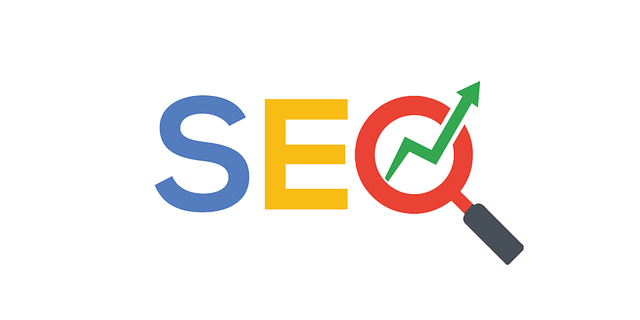By 2025, SEO will be revolutionized by AI-driven understanding of user SEO Trends 2025. Key shifts include:
Conversational SEO: Search engines prioritize understanding natural language queries and intent, requiring content that directly answers questions.
Personalization: AI enables highly tailored experiences based on individual user preferences and behaviors, boosting engagement and traffic.
Voice Search Optimization: Marketers must adapt to voice assistants by incorporating conversational language and optimizing for spoken queries.
Advanced User Intent Analysis: Machine learning algorithms predict user intent from search history and context, leading to more relevant results.
* Focus on User Experience (UX): Personalization, immersive technologies like AR/VR, and data-driven insights are crucial for engaging audiences and driving conversions.
In 2025, the digital landscape is poised for a significant transformation driven by evolving user search intent. As SEO trends continue to shape online experiences, understanding and optimizing for conversational queries become paramount. This article delves into key areas such as personalized content tailored to individual users, voice search optimization, AI’s role in intent interpretation, enhanced user experience, and advanced analytics crucial for successful intent optimization strategies.
The Evolving Landscape of User Search Intent in 2025

In 2025, the landscape of user search intent is set to undergo significant transformations driven by evolving digital behaviors and SEO trends. With the advancement in artificial intelligence (AI) and machine learning, understanding user queries at a deeper level has become more feasible. AI-powered tools can now analyze not only the keywords but also the context, sentiment, and user preferences, enabling search engines to deliver results that are increasingly tailored to individual needs. This shift towards personalized search experiences will significantly impact how businesses optimize their content for maximum visibility.
SEO strategies will need to adapt to these changes by focusing on long-tail keywords, voice search optimization, and creating content that addresses specific user intents. As users become more sophisticated in their online searches, content creators must delve deeper into understanding the nuances of user behavior. This involves crafting content that not only answers queries but also provides value through insights, entertainment, or problem-solving solutions, thereby enhancing user satisfaction and encouraging longer engagement durations on sites.
Understanding the Shift Towards Conversational SEO

In the evolving landscape of digital marketing, the year 2025 promises significant shifts in Search Engine Optimization (SEO) trends. One notable change is the growing emphasis on Conversational SEO, where search engines prioritize understanding user intent behind queries rather than simply matching keywords. This transition reflects a broader move towards more natural and human-like interactions with search tools. As users increasingly communicate with search engines through voice commands, chatbots, and messaging apps, algorithms are being refined to interpret context, sentiment, and nuance.
Conversational SEO involves optimizing content for conversational queries, focusing on long-tail keywords, and creating structured data that facilitates deeper understanding of user needs. Marketers need to adapt by producing content that answers questions directly, incorporates natural language, and caters to the growing demand for personalized, contextual information. This shift requires a deeper dive into user behavior, preferences, and pain points, ensuring content resonates with searchers’ intentions and fosters meaningful interactions.
Personalization: Tailoring Content to Individual Users

In 2025, personalization will be a driving force behind successful user intent optimization strategies. With advancements in AI and machine learning, content platforms are better equipped to understand individual user preferences, behaviors, and needs. This means crafting highly tailored experiences that resonate with each user on a personal level. By leveraging data-driven insights, businesses can create dynamic content that adapts to users’ unique interests, thereby enhancing engagement and satisfaction levels.
SEO Trends 2025 will heavily emphasize the role of personalization in driving organic traffic. Search engines are increasingly recognizing the value of personalized experiences, with algorithms designed to favor sites offering relevant, customized content. Marketers who prioritize user segmentation and individualized approaches will be better positioned to capture attention, improve conversion rates, and foster lasting customer relationships in a competitive digital landscape.
Voice Search Optimization: Reaching a Wider Audience

Voice search optimization is poised to be one of the prominent SEO trends in 2025, as more users turn to voice assistants for their information needs. With advancements in natural language processing, algorithms are becoming better at understanding and interpreting spoken queries. This shift towards voice search presents a unique opportunity for businesses to reach a wider audience. By optimizing content for voice commands, brands can ensure their websites and products are discoverable through voice-enabled devices like smart speakers and mobile phones with virtual assistants.
To stay relevant in the coming year, digital marketers need to adapt their strategies to cater to this evolving user behavior. This involves incorporating natural language phrases into content, enhancing conversational elements on pages, and optimizing metadata for voice searches. By focusing on these aspects, businesses can increase their visibility during voice queries, ultimately driving more traffic and conversions.
The Role of Artificial Intelligence in Intent Interpretation

In the evolving landscape of SEO trends 2025, Artificial Intelligence (AI) is poised to play a pivotal role in intent interpretation. AI algorithms are becoming increasingly sophisticated, enabling them to comprehend user queries with nuanced accuracy. By analyzing vast amounts of data, including search history and contextual information, AI can predict user intentions behind specific searches, enhancing the relevance of search engine results. This capability is particularly valuable as search engines strive to provide personalized experiences that cater to individual needs.
AI-driven intent interpretation allows for more precise matching between user queries and content, leading to improved user satisfaction and engagement. As AI continues to evolve, it will contribute to the advancement of voice search, virtual assistants, and conversational interfaces, further transforming how users interact with search engines. This shift towards more natural and contextual interactions reflects the ongoing evolution of SEO, aligning with the changing behaviors and expectations of modern internet users.
Enhancing User Experience for Better Engagement

In 2025, user experience (UX) optimization will be at the forefront of digital strategies, driven by evolving consumer expectations and cutting-edge SEO trends. As users become increasingly discerning, brands must create immersive experiences that cater to their needs and preferences. Personalization is set to play a pivotal role, with algorithms leveraging machine learning to offer tailored content and product recommendations. This not only enhances user satisfaction but also boosts engagement, as individuals are presented with relevant, valuable information.
Interactive elements, such as augmented reality (AR) and virtual reality (VR), will further blur the line between physical and digital experiences, captivating users in innovative ways. SEO practitioners should embrace these technologies to stay competitive, ensuring that search engines can crawl and index immersive content effectively. By prioritizing UX optimization, businesses can foster stronger connections with their audiences, ultimately driving higher conversion rates and fostering brand loyalty in the dynamic digital landscape of 2025.
Measuring Success: Advanced Analytics for Intent Optimization

In the realm of User Intent Optimization, measuring success is no longer a simple task. With the evolving landscape of SEO trends in 2025, advanced analytics have become indispensable tools. By leveraging sophisticated algorithms and machine learning capabilities, businesses can now gain profound insights into user behavior and intent patterns. This data-driven approach allows for precise tracking of keyword performance, click-through rates, and conversion metrics, ensuring that optimization strategies are aligned with actual user needs.
Advanced analytics platforms enable marketers to identify not only popular search terms but also the underlying motivations behind them. Through this granular understanding, content can be tailored to address specific user queries more effectively. As a result, SEO practices in 2025 are shifting towards creating dynamic, relevant, and valuable content that resonates with users at every stage of their journey, ultimately enhancing user satisfaction and driving better search engine rankings.
